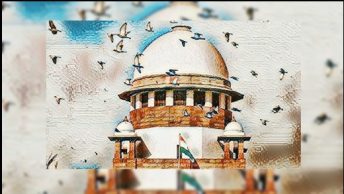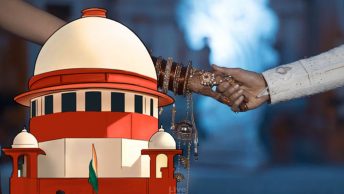This post is part of a series on constitutional and political questions relevant to contemporary times written by Sughosh Joshi, who is working on civic education and engagement. Sughosh also publishes a weekly substack newsletter called ‘In the Matter of the Republic’, you can check it out here and subscribe to it for regular updates.
The Uttarakhand Legislative Assembly last week passed the Uttarakhand Uniform Civil Code (“Uttarakhand’s UCC”). Uniform Civil Code has been a topic of discussion during the Constituent Assembly as well as in electoral politics after. This post shall explain the meaning of a Uniform Civil Code (“UCC”), elaborate on the history of the issue (the discussions in the Constituent Assembly), and finally highlight important features of and criticisms against Uttarakhand’s UCC while suggesting further readings on the same.
What is a Uniform Civil Code?
Law is broadly divided into criminal and civil branches. Criminal law is that branch of law that deals with criminal wrongs, that is acts or omissions of a person which attract consequences such as jail and fines. Criminal wrongs are considered to be acts or omissions against the State. On the other hand, civil law deals with civil wrongs which attract consequences such as injunctions, payment of damages (compensation), etc. Civil wrongs are generally against persons – individuals or corporations.
Therefore, a Civil Code, in its plain sense means codification of all such laws which fall under the branch of civil law – property law, law of torts, contract law, family law, corporate law, etc. A Uniform Civil Code would mean a civil code as defined above which applies uniformly to all persons in that jurisdiction. In India, apart from family law and elements of property law connected with family law, all civil law applies uniformly to all persons (except where a distinction is drawn between a citizen and a person). In the political sense, the meaning of UCC is now limited to a uniform set of laws governing subjects of family law – marriage and divorce, succession, adoption, maintenance, etc., irrespective of religion and caste.
In this sense, too, India has a Uniform Civil Law (it has not been codified together) in the form of the Special Marriage Act, 1954 and the Indian Succession Act, 1925 (which covers succession for marriages under the Special Marriage Act). Of course, getting married under the Special Marriage Act, 1954 is voluntary and therefore, most do not consider it a UCC, despite it fitting the bill, per se.
History of UCC – Constituent Assembly
Article 44 of the Constitution of India reads, “The State shall endeavour to secure for citizens a uniform civil code throughout the territory of India.” This was introduced before the Constituent Assembly in the form of Draft Article 35. Members spoke in favour of and against the UCC and suggested amendments.
Those who spoke in favour of UCC argued that even within draft Article 19 (Article 25 – freedom of religion), the State was empowered to interfere in religious or secular activities for the purposes of regulation or social reform. Further, a State could always enact a UCC without the existence of draft Article 35. Examples of countries such as Turkey and Egypt were provided to argue that ‘advanced Muslim countries’ had a uniform law that did not consider the personal laws of minorities. It was shown that it is not simply Muslims and other minorities but Hindu law that would undergo significant change in light of a UCC. In allowing different practices and personal laws, one also runs the risk of not enforcing the fundamental right of equality, since religion would never allow women and men on an equal footing. It was argued that a UCC would lead communities out of their isolationism and help produce national unity. In an advancing society, it was said, “we must put our foot down and say that these matters are not religion, they are purely matters for secular legislation”.
Those who opposed UCC and/or suggested amendments to the draft raised three main points. First, that the State should not impose a UCC on people. Either it be an option for citizens to follow or not to follow any UCC or that a proviso be added to the Article to require that a UCC will not be enacted without the support of all communities. Some members suggested that any changes in personal laws leading to a shift to UCC should be gradual rather than sudden. Second, that while the purpose stated by its proponents was harmony through uniformity, a UCC was unlikely to be successful in this endeavour given the diversity of and within religions, including Hinduism and that it was difficult to ensure that this diversity was respected while creating a UCC. Third, members argued that the subject of family law was essentially religious. It was argued that the State should not interfere in religious matters, allowing this would be a “tyranny” and that citizens had a right to freedom of religion under the Constitution.
Finally, Dr B R Ambedkar responded to all amendments and arguments. He argued that since the Civil Code includes laws on all matters, several legislations were enacted and the question of whether a UCC was possible was belated. He gave several examples where Muslims were governed by Hindu law in the North-West Frontier, pointing out that it was only in 1937 that Muslim personal law was applied to the entire British India by way of the Muslim Personal Law (Shariat) Application Act, 1937. Dr Ambedkar sought to assure the minority communities that the wording of the provision was conciliatory and would allow Parliament to make provisions which could lead to a flexible application of the law. In his words:
“My second observation is to give them an assurance. I quite realise their feelings in the matter, but I think they have read rather too much into article 35, which merely proposes that the State shall endeavour to secure a civil code for the citizens of the country. It does not say that after the Code is framed the State shall enforce it upon all citizens merely because they are citizens. It is perfectly possible that the future parliament may make a provision by way of making a beginning that the Code shall apply only to those who make a declaration that they are prepared to be bound by it, so that in the initial stage the application of the Code may be purely voluntary. Parliament may feel the ground by some such method…in the Shariat Act of 1937 when it was applied to territories other than the North-West Frontier Province…said that here is a Shariat law which should be applied to Mussulmans who wanted that he should be bound by the Shariat Act should go to an officer of the state, make a declaration that he is willing to be bound by it, and after he has made that declaration the law will bind him and his successors. It would be perfectly possible for parliament to introduce a provision of that sort; so that the fear which my friends have expressed here will be altogether nullified…”
Uttarakhand’s UCC – Some congratulations, Some concerns
While there are some bouquets the Uttarakhand government will receive for the UCC, the brickbats are more in number. Tribal communities are exempted from its application, raising the question – is the UCC really uniform?
On the positive side, the UCC removes the concept of an ‘illegitimate’ child, that is a child born out of a void or voidable marriage. Now, any child born out of such wedlock will be treated in the same way as a child born out of a ‘valid’ marriage. Second, polygamy has been prohibited, thereby furthering one of the purported aims of UCC – equality for women. Third, there are increased rights of women in succession as opposed to Muslim and Christian personal laws.
On the other hand, there are several issues with this UCC. First, coparcenary rights in ancestral property as a concept have been abolished; therefore, on the face of it means Hindus giving up one way of succession. However, this reverses the 2005 Amendment to the Hindu Succession Act, 1956, which gave daughters an equal right to ancestral property. Second, the UCC could have inculcated the progressive practice under Muslim personal law of restricting the extent of property – only one-third – that can be given away under a will. This would have ensured that rightful heirs (especially daughters) would not miss out on a share in their property. This combined with the removal of coparcenary property means that Hindu fathers can will away their personal as well as ancestral property to their sons. Further, there is no clarity on whether Hindu Undivided Family (HUF) as a legal person (used especially for tax purposes, read: avoidance) can continue to exist when the underlying concept of coparcenary property loses legal recognition.
Third, the UCC misses out on the opportunity to allow queer marriage or even create civil relationships as the Supreme Court had suggested. Contrary to that, it has created a draconian system of registration of live-in relationships with no legal rights flowing from it. Fourth, the UCC continues with the regressive idea of ‘restitution of conjugal rights’, that is spouses (mostly men) can petition a court to ask the other spouse to return to the marital home and resume ‘conjugal relations’ with them.
Further reading
On a comprehensive understanding of the UCC, the following are excellent reads:
- On the UCC being made on the template of Hindu personal law: Uniform Cut and Paste? A quick appraisal of Uttarakhand’s Uniform Civil Code Bill
- On an analysis of succession for Hindus, Muslims and Christians: How Uttarakhand Uniform Civil Code Impacts Hindu, Muslim and Christian Succession Laws
- On the lack of clarity and confusion created by the UCC: Uttarakhand’s UCC: More confusion, few solutions
- On mandatory registrations for live-in relationships: Uttarakhand Uniform Civil Code: Registration of live-ins, jail term raise questions of privacy & liberty
Sughosh is working on civic education and engagement. He is deeply interested in Constitutional Law, Politics and Policy. He graduated from NALSAR University of Law.






[…] Posted bySughosh Joshi […]
59pte3